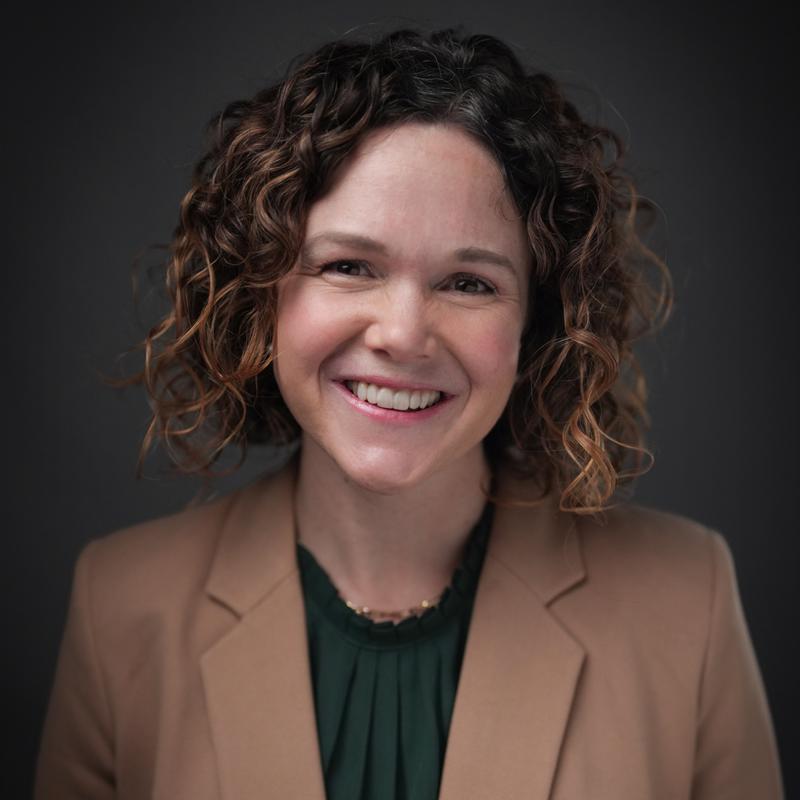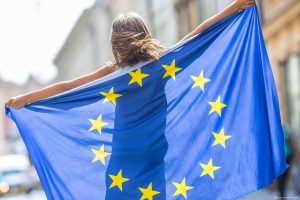-

Stephanie Acker
Research Associate
Robert Schuman Centre for Advanced Studies

Read more
Blog, Migration Governance
Most Ukrainians now identify as Europeans: Reshaping identity in times of war
Putin expected to destabilize or even demolish the EU with the huge wave of migrants that followed the full-scale Russian invasion of Ukraine. Instead, the opposite happened: it greatly enhanced the sense of European...
In just a few days, world leaders will gather in Geneva for the Global Refugee Forum. Who will be included, perhaps in the most significant way since the adoption of the Geneva Convention almost 70 years ago? Refugees themselves.
The Global Refugee Forum is significant symbolically and practically for the future of refugee policy, bringing together delegations from nearly every country, international non-profits, and philanthropists to announce commitments to advancing the objectives of the Global Compact on Refugees. The traditional model of global governance has been nation centred. But what do individuals, such as refugees, without a nation to represent them, do?
In just the past five years, refugees have been leading a remarkable change on the global stage to be heard, included, and looked to in shaping refugee policy. How did this happen and what are the implications? This post synthesizes major milestones and research on the role of refugees in refugee policy, and what to look for at the Global Refugee Forum.
What’s happened and how:
New York Declaration (2016): a response to the “refugee crisis”
In 2016 world leaders gathered to adopt the New York Declaration and chart a new way forward in improving outcomes for the world’s more than 20 million refugees at the time. At this multi-day international policy gathering about refugees, how many refugees themselves were in attendance? Two. While research has demonstrated that refugees have long played critical roles in refugee protection and were fundamental in early international refugee law, the New York Declaration was unfortunately indicative of the past 70 years of international refugee policymaking and governance: largely absent of refugees’ involvement in systematic and significant ways.
Post the New York Declaration (2016-2018): catalysing action
Responding to their lack of inclusion at the New York Declaration, refugees’ organising and advocacy grew on the international stage. This was perhaps most tangibly represented at the first ever Global Summit of Refugees, convening 72 refugee representatives from 27 host countries to begin to outline shared priorities and demands from states, UNHCR, and international and national NGOs. UNHCR made concrete attempts to increase refugee participation. At a leadership level, UNHCR affirmed refugee participation as one of its strategic priorities at its Executive Committee (ExCom) meeting. At a practical level, to develop the Global Compact on Refugees, UNHCR hosted a series of consultations, which incorporated refugees more directly.
Global Compact on Refugees (2018): International recognition
The Global Compact on Refugees, adopted in 2018, marked an important and distinct shift in its recognition of refugee-participation. It articulated the importance of refuge participation and that refugee “responses are most effective when they actively and meaningfully engage those they are intended to protect and assist.” It also set an expectation that adopters of the Compact would work to embody this. It called on states and NGOs to develop “consultative processes” that allow refugees to assist in designing “appropriate, accessible, and inclusive responses” and to explore “how best to include refugees…in key forums and processes” (see paragraph 34).
Post Global Compact on Refugees (2019 to present): A growing movement
Since the adoption of the Global Compact on Refugees, there has been an increase in initiatives, events, funding, and research to promote and understand refugee participation. This began to be most prominently seen in 2019, at the first Global Refugee Forum. The Global Refugee Network called for States, NGOs, and other actors to formally make pledges to promote refugee participation. Signatories of the pledge now include Australia, Canada, Denmark, the Netherlands, the US and a dozen NGOs. During the forum, Canada included a refugee advisor on their official delegation, attending both strategy meetings and plenary gatherings and setting a precedent for other states to follow.
The importance of refugee leadership and refugee-led organisations was quickly demonstrated just a few months after the forum in 2020; as COVID-19 swept across the globe, closing borders and locking down countries, the ones who responded, innovated, and led efforts in refugee communities were not policymakers, but refugees themselves. Refugees’ role took another notable turn during the 2021 High-Level Officials stock-taking meeting: more than 130 refugees participated in the event, a side event was dedicated solely to exploring refugee -participation, and increasing refugee-participation was listed as one of the key recommendations of the event.
In 2022, UNHCR created a refugee advisory board and launched a dedicated grant fund for refugee-led organizations. Several initiatives for capacity-strengthening—including training programs, collaborations and toolkits— have also been created to support refugee-led organizations. New research collaboratives have begun to ensure that refugees are central in setting research agendas and conducting research. Regional refugee-led networks have been established (for example in Africa and Asia Pacific). Following and increasing Canada’s precedent, at the 2022 UNHCR Executive Committee meeting, the United States included Iraqi refugee, Basma Alawee, on their delegation and allotted part of their allotted time in the plenary session to Alawee—a short and symbolic act, that becomes formalised in the institutional record keeping of the gathering and contributes to precedent-setting.
A stated value or an incorporated practice?
While the Global Compact might have called for the meaningful participation of refugees, it did not formally define it or create a framework of how refuge governance actors should implement it. Refugee-led organisations have worked to fill this gap. For example, the Global Network for Refugees established a definition and proposed concrete guidelines for how partners can implement meaningful participation. R-SEAT has worked to coach states on how to set up structures and systems to adopt this. UNHCR’s advisory board is also tasked with creating a framework and guidance.
Research on refugees’ individual and collective agency has been well-documented and research focused on refugee-led organizations has been increasing. However, most of the research related to refugee-participation highlights the unique roles that refugee-led organizations play or the barriers they encounter in being more involved. It’s documented that there is “rhetorical recognition” at a policy level of the role that refugees can play, but there is still little empirical evidence that refugees are actually better represented and that their presence is informing policy. Lacking formal adoption and tracking, research suggests that states and INGOs will decide on their own both if and how they incorporate refugees in policy and decision-making. A recent study found that refugee-led organisations on average receive grants 10 times smaller than other NGOs and report that what they do receive feels nearly entirely “performative and tokenistic.”
It may be accepted and expected that refugee participation should happen, but we know little about what effect it is having.
Signs of change: from participant to expert at the Global Refugee Forum
But this year’s Global Refugee Forum, could possibly mark an important turning point. There are expected to be 300 refugees in attendance—four times as many as were at the last one—who represent three groups, each of which are significant.
- Advisory Board: UNHCR’s advisory board that is comprised of representatives of 16 organisations led by refugees, IDPs and stateless individuals
- Refugee-Led Organisations: refugee-serving organisations that are primarily led by individuals with lived experience of forced displacement
- Refugee experts: a group of approximately 70 refugees experts who provide guidance across the UN
In addition, it is expected that anywhere from 10 to 15 states and several INGOs will include refugees on their formal delegations. There will be a dedicated physical space for refugees at Geneva Impact Hub, a practical and symbolic way of taking up space like any other institution would.
What will matter more than their presence, is the substance of their involvement. While the recognition of refugee engagement has drastically changed, there has also been an important shift in the language; Mustafo Alio, Co-Director of R-SEAT, shared that for “the first time, refugees aren’t simply ‘participating’ or ‘being included’ but are being called and looked to as experts.” Around Geneva, R-SEAT in collaboration with other refugee-led organisations will have posters up all throughout the city voicing refugees’ priorities.
Will their priorities influence…Discussion? Pledges? Action?
Tune into the Global Refugee Forum to see or follow along with us over on X formerly known as Twitter.

